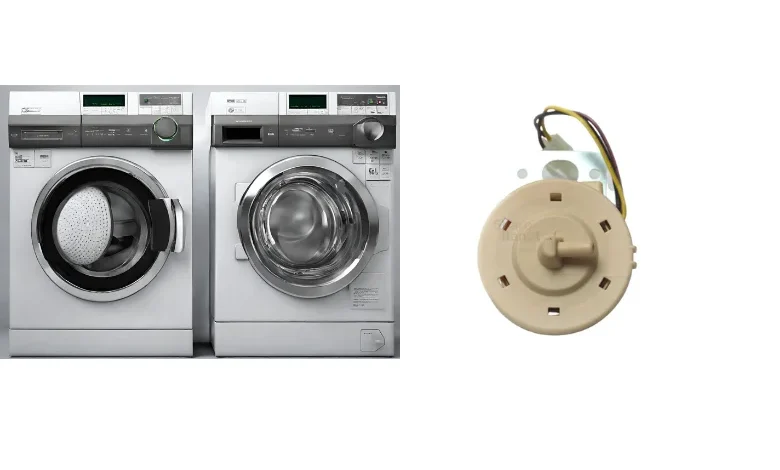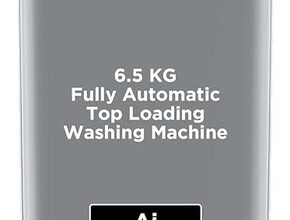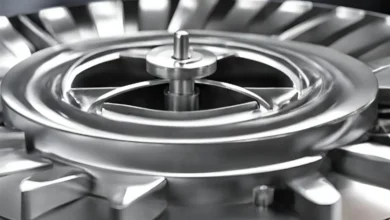Revolutionizing Laundry: The In-Depth Exploration of Load Sensors in Washing Machines

Washing machines, once simple devices with a singular purpose, have undergone a transformative evolution, and at the core of this metamorphosis lies the ingenious integration of load sensors. These sophisticated sensors, capable of measuring the weight of the laundry load, have revolutionized the laundry experience. In this comprehensive exploration, we delve into the multifaceted applications of load sensors in washing machines, ranging from water and energy efficiency to fabric preservation and beyond.
Also Read: Best Washing Machine in India
Water Efficiency through Load Sensing
Traditional washing machines have long suffered from a flaw in their design – a fixed water usage irrespective of the load size. This inefficiency led to unnecessary water wastage, particularly when dealing with smaller loads. Load sensors emerge as a solution by dynamically adjusting the water level based on the weight of the laundry. This intelligent adaptation ensures that the machine dispenses the appropriate amount of water, aligning with contemporary efforts towards sustainable living.
Energy Efficiency and Load Sensing
A crucial aspect intertwined with water optimization is the relationship between load weight and energy consumption. Load sensors, by accurately measuring the weight of the laundry load, empower washing machines to intelligently adjust the duration and intensity of the washing cycle. The result is a significant reduction in energy consumption, making modern washing machines not only convenient but also environmentally conscious.
Dynamic Cycle Adaptation
For lighter loads, the machine may reduce the cycle duration and intensity, thereby consuming less energy. Conversely, heavier loads may prompt a slightly longer cycle to ensure thorough cleaning. This dynamic adaptation based on load sensing results in significant energy savings over time, marking a pivotal advancement in the realm of household appliances.
Preserving Fabric Quality through Intelligent Washing
Beyond the realm of resource efficiency, load sensors contribute significantly to fabric care and longevity. The wear and tear experienced by clothes during washing cycles often result from factors such as excessive agitation and high spin speeds. Load sensors address this issue by tailoring the washing process to the specific characteristics of the load.
Gentle Treatment for Delicate Fabrics
When the machine accurately gauges the weight of the laundry, it can adjust the agitation and spin cycles accordingly. Delicate fabrics benefit from gentler treatment, while sturdier materials may undergo a more robust washing process. This meticulous approach to fabric care ensures that clothes endure minimal stress during each cycle, preserving their quality and extending their lifespan.
Optimizing Detergent Usage for Efficiency
Load sensors extend their influence to the realm of detergent optimization. The amount of detergent required for an effective wash is inherently tied to the size of the laundry load. Traditional washing machines often rely on user estimates or fixed dispensing mechanisms, leading to either wasteful excess or insufficient detergent use.
Preventing Detergent Waste
Load sensors eliminate this guesswork by dynamically adjusting the detergent quantity based on the actual load size. This not only ensures a thorough cleaning process but also contributes to cost savings for users by preventing unnecessary detergent waste. Furthermore, it aligns with the broader goal of minimizing the environmental impact associated with detergent production and disposal.
Preventing Overloading and Enhancing Appliance Longevity
Overloading is a common concern in laundry routines that can lead to a host of issues, ranging from inefficient cleaning to potential damage to the washing machine itself. Load sensors act as guardians against overloading by constantly monitoring the weight of the laundry.
Proactive Overload Prevention
If the sensors detect an excessive load, the washing machine can alert the user or automatically adjust the cycle parameters to accommodate the load safely. This proactive approach not only prevents strain on the motor and other components but also contributes to the overall longevity and durability of the washing machine.
Customized Wash Programs for Tailored Solutions
The integration of load sensors opens the door to a new era of customized wash programs. Traditional washing machines often offer a limited set of predefined cycles that may not cater to the diverse needs of different laundry loads.
Intelligent Customization
Load sensors provide the necessary data for intelligent customization. Washing machines can now offer a range of wash programs tailored to specific characteristics such as fabric type, color, and soil level. Users can select the optimal program, confident that the machine will adapt its parameters based on the weight and nature of the load, delivering a more personalized and efficient washing experience.
Water Drainage Optimization for Enhanced Performance
Efficient water drainage is a critical aspect of a washing machine’s performance. Load sensors contribute to this efficiency by determining the optimal time to initiate the draining process based on the load weight. By synchronizing drainage with the completion of the wash cycle, load sensors ensure that water is expelled at the most opportune moment.
Performance Enhancement and Environmental Responsibility
This optimization not only improves the overall performance of the washing machine but also has implications for water conservation. Unnecessary delays in drainage can lead to water retention in the machine, necessitating additional rinses and wasting water. Load sensors address this issue, contributing to both performance enhancement and environmental responsibility.
Conclusion
In conclusion, the integration of load sensors in washing machines represents a paradigm shift in laundry technology. From optimizing resource usage to preserving fabric quality and enhancing overall appliance longevity, load sensors have elevated the efficiency and intelligence of modern washing machines. As we continue to witness advancements in household appliances, the role of load sensors stands as a testament to the ongoing pursuit of innovation in making our daily lives more convenient, sustainable, and tailored to individual needs.






